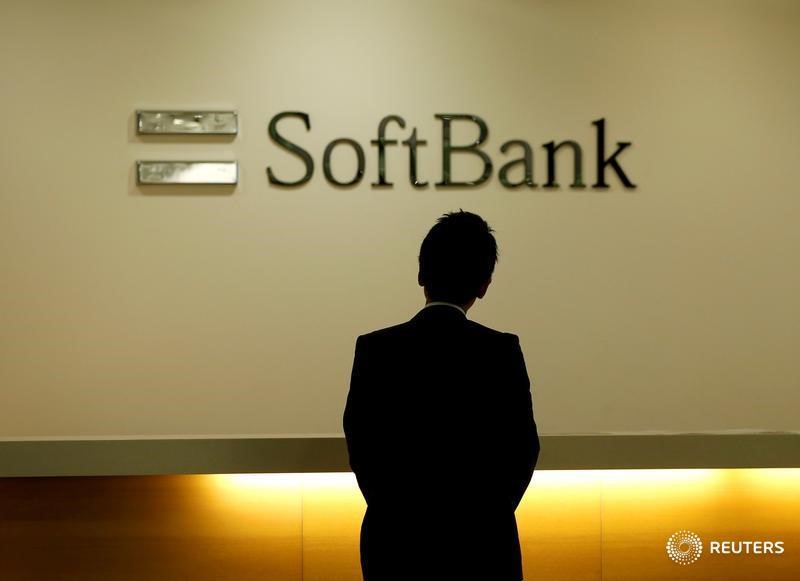By Claire Milhench
LONDON (Reuters) - Sovereign investors are sinking more money into tech start-ups and opening offices in Silicon Valley in the hope of bagging a "unicorn" - the rare private firm that grows in value to over $1 billion.
Sovereign wealth funds (SWFs), which run over $6.59 trillion in assets, hope that investing at an early stage will yield outsize returns if the firms enjoy dizzying growth.
But such start-ups can also offer a useful hedge in case SWF holdings in mature sectors come under threat from digital disrupters, just as global hotel chains have been undercut by online room rentals business Airbnb - itself a unicorn.
SWFs made 12 investments last year in U.S. start-ups, worth $12.4 billion, up from four investments in 2012 worth $202 million, according to data compiled by research firm PitchBook.
Globally, there were 42 deals involving SWFs and start-ups last year valued at some $16.2 billion, according to the Sovereign Wealth Lab research center at Madrid's IE Business School.
The creation of the $100 billion technology-focused Vision Fund suggests these numbers will grow. The fund is a venture between Japan's SoftBank and Saudi's PIF, the latter's appetite whetted by its $3.5 billion investment in ride-hailing app Uber.
Last year's deals with SWF participation included multi-billion dollar funding rounds for companies such as China Internet Plus and Ant Financial Services, an affiliate of China's Alibaba (NYSE:BABA).
SCOUTING FOR UNICORNS
How the funds scout out these opportunities varies.
Some SWFs have dedicated venture capital units such as Temasek's Vertex Ventures, Kuwait's Impulse and Canada's OMERS Ventures.
But more are opening offices in San Francisco's Silicon Valley - a hub for tech start-ups - with Qatar Investment Authority (QIA) the latest to announce plans.
"There are a lot of these unicorns growing at a clip here faster than anywhere else," said Babak Nikravesh, an SF-based partner at law firm Hogan Lovells, who represents sovereign investors. "The returns are outsized returns – and that's what's driving a number of sovereigns to open here."
According to Fortune, the United States accounted for 101 unicorns in 2016, with China hosting 36, the United Kingdom eight, and India seven.
GIC and Malaysia's Khazanah already have offices in San Francisco, while Temasek opened an office in late 2016, and in January made an $800 million investment in healthcare tech firm Verily Life Sciences..
"We've been stepping up investments in tech, life sciences and healthcare, and having a presence in San Francisco helps us get closer to the companies in these sectors," Paul Ewing-Chow, an associate director at Temasek, told Reuters by e-mail.
London is also attracting some funds. Khazanah set up in London last May to target European tech ventures. GIC, a shareholder in UK-based tech and healthcare incubator Allied Minds (L:ALM), also has an office in London.
FINDING WINNERS
With fierce competition for the best opportunities, some SWFs work closely with third-party venture capitalists who spotlight promising companies.
Recently, Australia's $130 billion Future Fund co-invested with venture capital firm NEA in Fugue, a start-up working in cloud computing, and California-based Radiology Partners.
The Australian fund was also among those canny enough to gain early exposure to unicorns such as Uber, Pinterest, Airbnb and Snapchat, earning annual returns of well over 20 percent net of fees from its venture program.
"Venture is very important to us as it gives us access to the current innovation and disruption trend," the fund's chief investment officer Raphael Arndt told a conference in Melbourne last September.
With digital disruptors continuing to erode the market share of less innovative old sector companies, from taxi firms to car-makers, start-ups are an ideal portfolio hedge.
"In banking, (SWFs) invest a lot in fintech, in transport they invest in driverless cars. They need to balance their portfolios with the old and the new players," said Javier Capape, a director at the Sovereign Wealth Lab.
SWFs might spread the risk by seeding several firms in the same sector. "You can't invest in just one start-up as the risk is huge – normally they fail eight out of 10 times," he added.
A typical commitment might be only about $5 million-$20 million, but the number of deals is growing as SWFs try to ensure they pick a winner. GIC has backed several firms in the electric vehicle sector.
"Valuations can ramp up very quickly," said Nikhil Salvi, a manager at Aranca, an investment research and analytics firm. "SWFs are willing to put small stakes in a lot of companies with the expectation that one or two might become outsize successes - that can change the portfolio return quite dramatically."
Khazanah earned over $1 billion on its $400 million investment in China's Alibaba in less than two years ahead of its New York listing. And GIC participated in a 2015 $400 million funding round for India's Uber rival Ola, which is now valued at $5 billion.
PATIENCE
But SWFs are not always seeking a quick pay out.
The Ireland Strategic Investment Fund (ISIF) says early stage investments are a way to support economic activity at home, while generating commercial returns. It recently backed U.S. tech unicorns InsideSales.com, and Kabbage, which have committed to open offices in Ireland.
"Tech investments are particularly appealing to us given Ireland's strong reputation as a tech hub," ISIF director Eugene O'Callaghan said, predicting ISIF's tech exposure would grow.
But with 193 unicorns globally worth $681 billion according to venture capital database CB Insights, some industry participants worry that a risk bubble is forming. Another fear is that the Vision Fund will inflate valuations, heightening the risk that initial public offerings (IPOs) disappoint.
U.S. software company Cloudera (N:CLDR), which made its stock market debut in April, priced well below than the $4.1 billion it was once valued at.
